Human beings have an element of consciousness present inside their minds, which endows them with the ability to think and make decisions.
AASIFA RAHMATH HAMEED
JANUARY 30, 2023
The concept of ‘Adl’ or ‘absolute justice’ has been so beautifully explained by Hazrat Mirza Tahir Ahmadrh, the Fourth Caliph of the Ahmadiyya Muslim Community, in his book Absolute Justice, Kindness, and Kinship. The book delves deep into the following verse of the Holy Quran:
“Indeed Allah requires you to abide by justice, to treat with grace and to give like the giving of kin to kin.”[1]
The chapter named An-Nahl, which the above verse belongs to, encompasses the essence of the Holy Quran and explains to human beings in a simple way about the bounties bestowed upon man by God Almighty. On the other hand, the next part of the chapter states how a man would be pushed back to a primal state when it comes to his morality and how he would be deprived of the endless bounties if he does not worship God and abide by the laws governed by Him. This has been explained in the book in the following words:
“Alas, man is ungrateful. In spite of intelligence he remains heedless of that Omnipotent Being while every particle of the universe bears witness to His existence!”[2]
In the book, Hazrat Mirza Tahir Ahmadrh has taken great pains to explain this concept in simple terms so that any ordinary person can comprehend the concept. He states that the world has been perceived and created by God because He was kind enough to show justice towards inanimate and animate beings. From a single cell organism to complex human beings like us, we are all products of the cosmos created due to the absolute justice shown by the one true God. If this does not make man exercise humility, then I don’t know what will!
Hazrat Mirza Tahir Ahmadrh mentions that human beings are the only animate beings that have the element of consciousness present inside their minds. This distinction makes man a superior being as he is endowed with the ability to think and make decisions. Good decisions and good deeds will take him closer to God and transform him into a more spiritually developed being, whereas committing sins and evil deeds would cause destruction within himself. His morality and spirituality are constrained, and he causes chaos and destruction around himself as well.
“The least demand, yet at the same time the most important one that Allah makes on the believers, is absolute justice. However, they are not expected to stop short at only justice; they are required to move on to the domain of benevolence. They will then not only be just towards mankind, but will also learn the art of returning more than the others’ dues; their generosity will benefit people without obligation. This, in Quranic terminology, is called Ihsan or benevolence.”[3]
These lines bring our attention to the most important issue that is plaguing mankind right now: lack of compassion. Particularly during these testing times, we find instances of injustice everywhere around us. The world right now needs more kindness and a sense of kinship than ever before. This can only be achieved by practising absolute justice. The following lines are very important in understanding this key aspect:
“True faith in God requires that security and protection which one receives from God, should also be extended to His other creatures. Hence, if someone is remiss in discharging his responsibility of extending security and protection to others, he would have faltered in his faith.”[4]
And,
“Muslims should learn to fulfil even the smallest of their obligations concerning others. Only thus can a system of justice be built covering all areas of human relationship.”[5]
When I read this book during these turbulent times, I couldn’t help but wonder how much it applies to the current scenario of the world. With the recklessness of the world leaders looming large over our heads, we are able to understand that there is no justice within themselves. The primal state of morality also can be found within the majority of people in this current world. Forget the pandemic, but even before that, the world was slowly losing its compassion. In the last few years, this has only gotten worse due to hate speech, minority oppression, systemic racism, misogynism, terrorism in the name of religion and whatnot.
“If one desires to investigate with an open mind the root cause of all evils, whether social, political, economic or moral, one will always find that the disregard for justice lies at the heart of all such evils.”[6]
It is only through fulfilling the requirements of absolute justice that the world can be a better place to live in because it was created by the one true God with absolute perfection without any mistakes.
“It is a boundless bounty of Allah that we, belonging to the Ahmadiyya Community, are a people who remain always content with the will of Allah; because this is the very essence of the philosophy of Allah’s protection extending to His humble servants – if people are completely content with all the manifestations of Allah’s will they become the living symbols of His design. So much so that He sees to it that they are neither overpowered nor destroyed.”[7]
The above lines are a testament to understanding that the hand of God will uphold justice over everything else. This is a promise that we, as Ahmadi Muslims, believe in and for which we should praise and worship God Almighty.

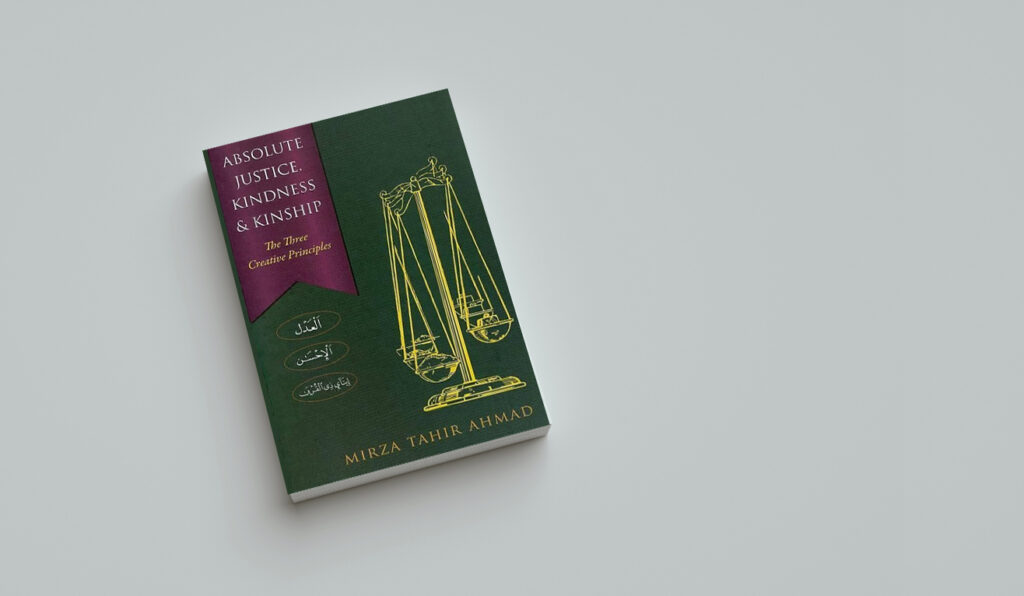



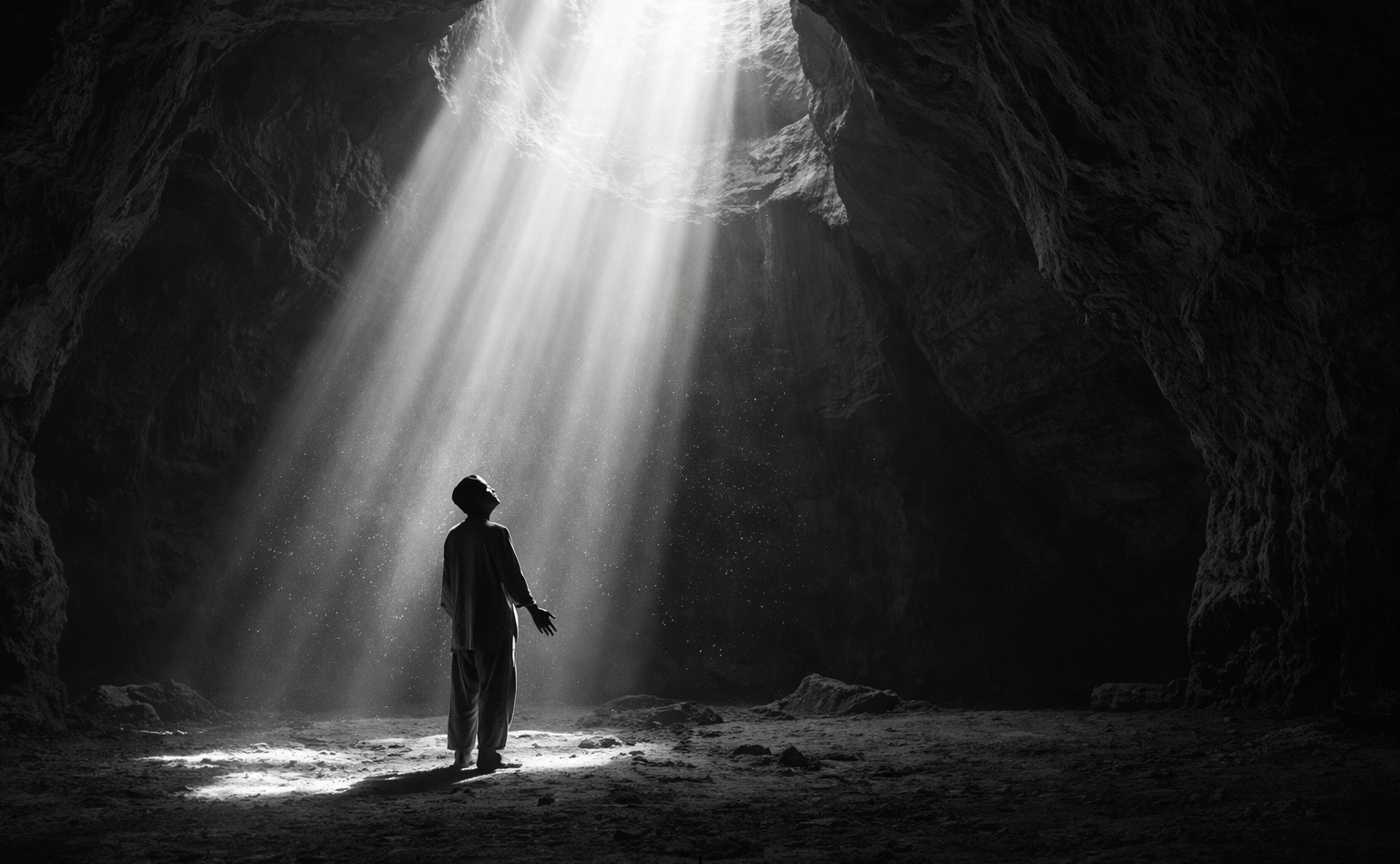
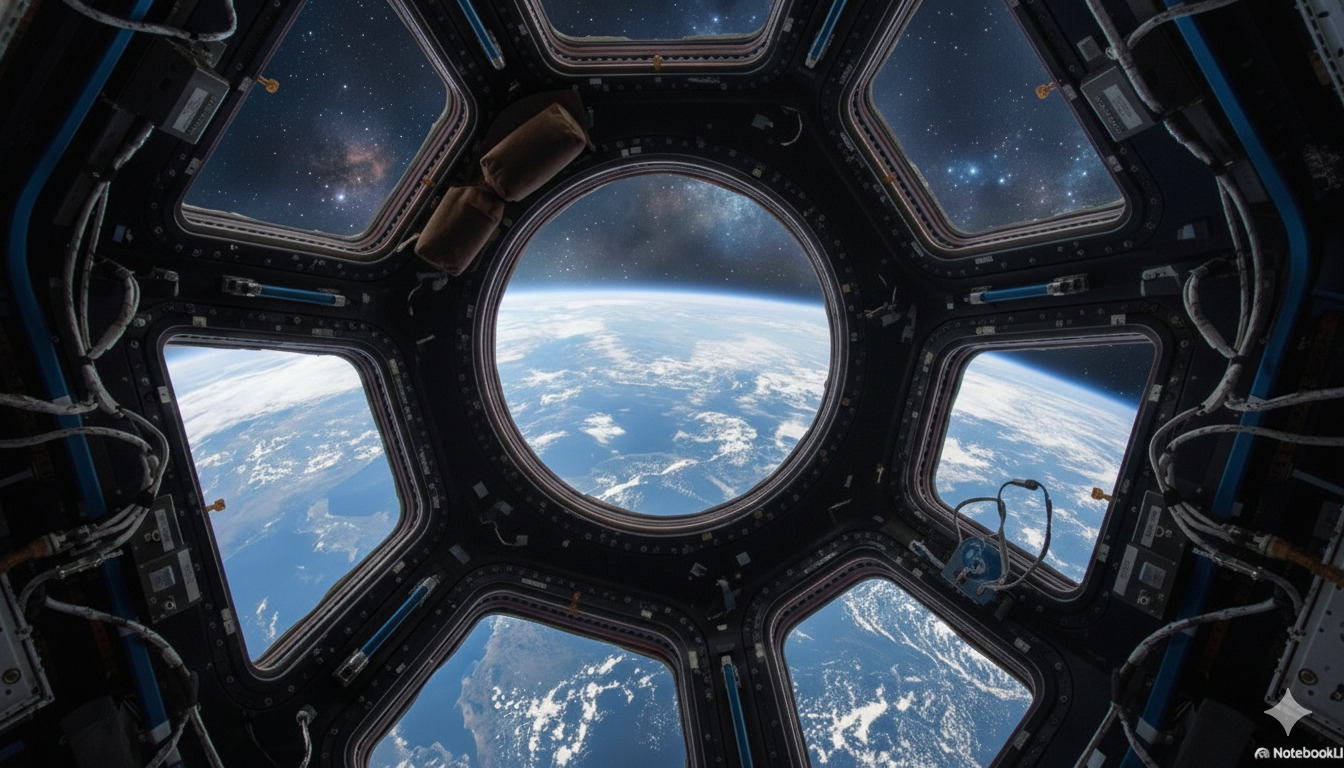



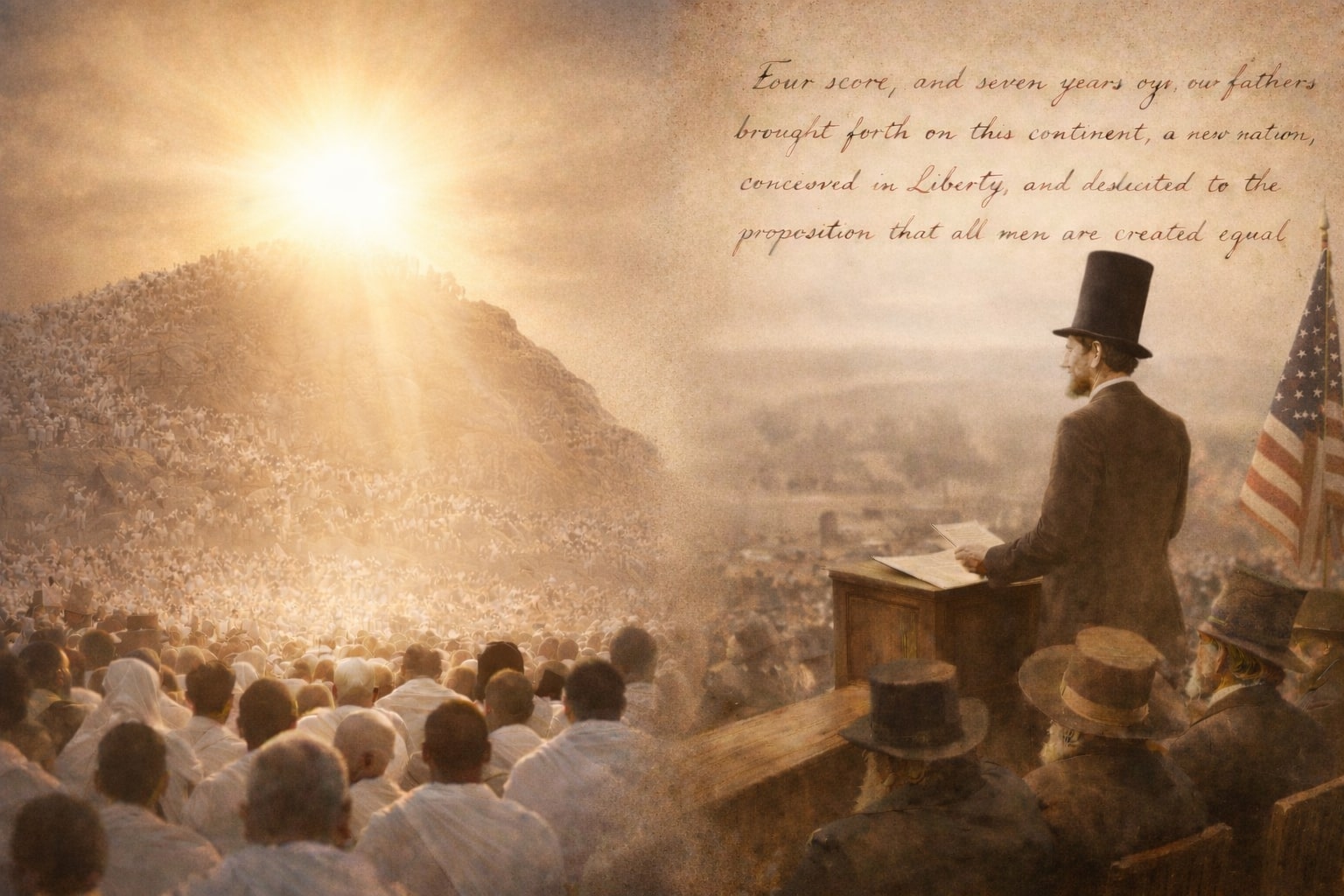
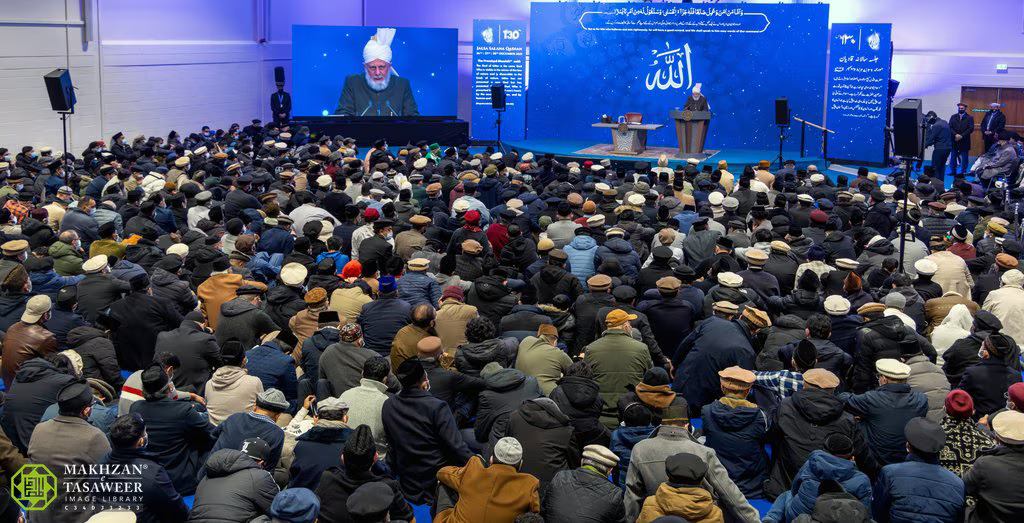
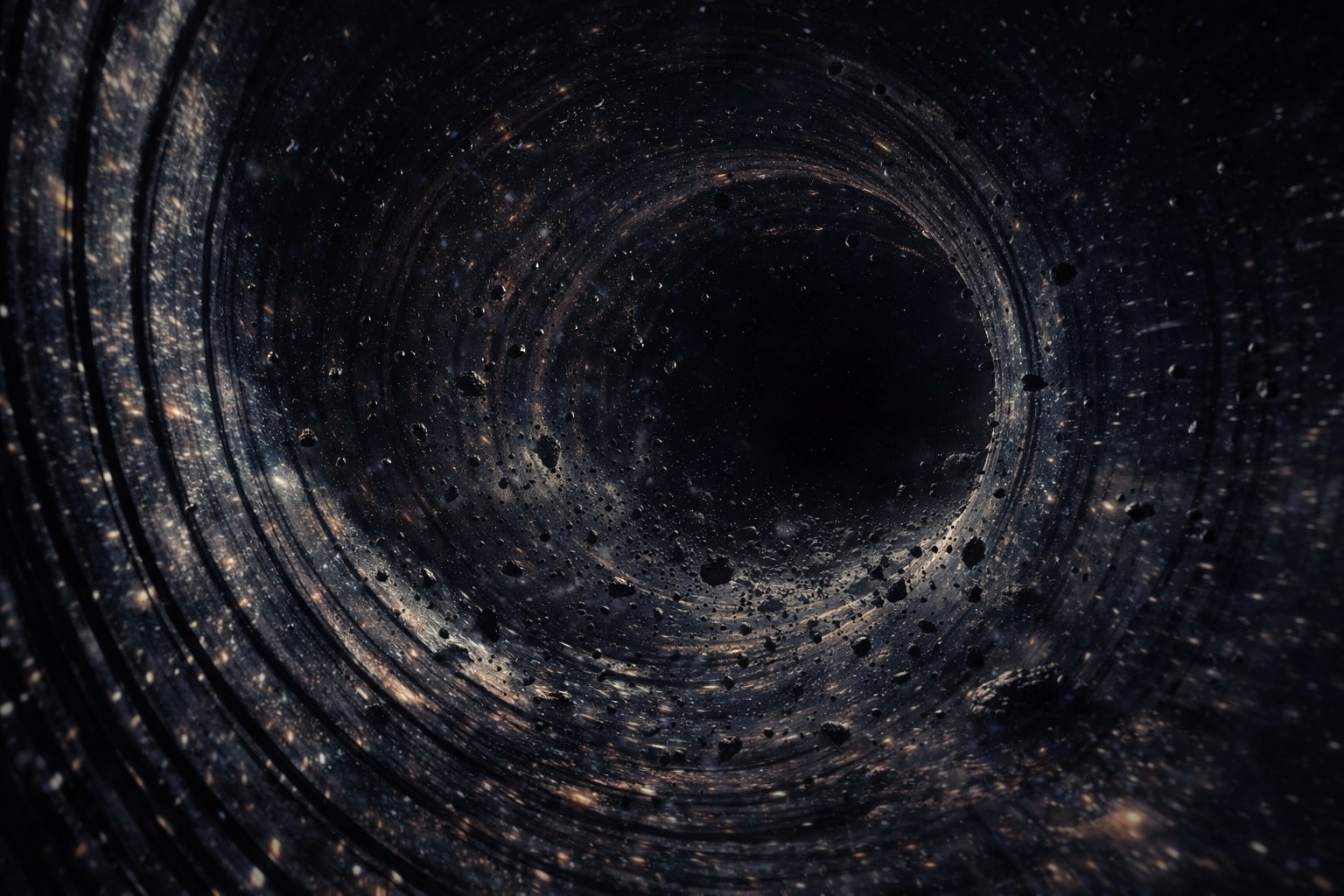
1 Comment
Saleeq Ahmad naik · January 31, 2024 at 3:10 pm
The review of “Absolute Justice, Kindness, and Kinship” eloquently captures the essence of Hazrat Mirza Tahir Ahmadrh’s exploration of the concept of ‘Adl’ or absolute justice as elucidated in the Holy Quran. The review adeptly highlights the significance of justice, kindness, and kinship in the context of human morality and spirituality. It emphasizes the importance of compassion, benevolence, and fulfilling obligations towards others, especially during challenging times marked by injustice and lack of empathy. The reviewer’s reflection on the relevance of these teachings in addressing contemporary issues like social injustice, political unrest, and moral decay adds depth to the discussion. Overall, the review provides a compelling insight into the book’s profound themes and their relevance in fostering a more just and compassionate world.